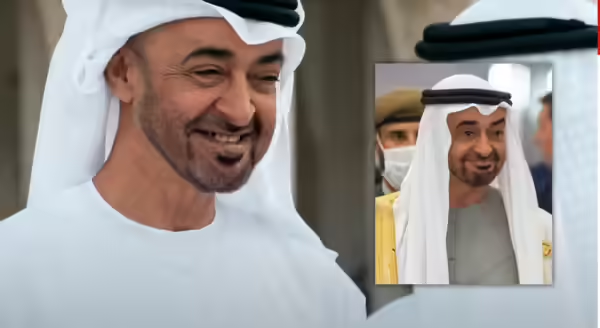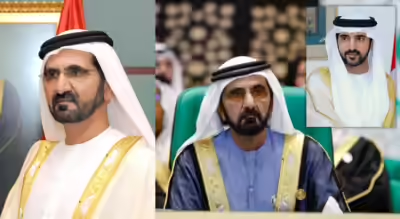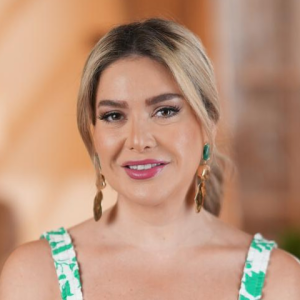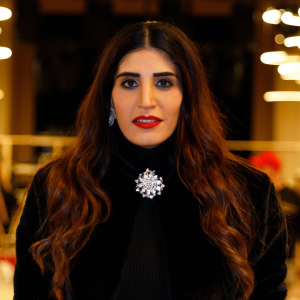The United Arab Emirates stands as a remarkable example of unity, prosperity, and visionary leadership in the Middle East. Formed in 1971, this federation of seven emirates is led by ruling families whose stories are woven deeply into the nation’s rapid transformation from desert lands to one of the most progressive nations on earth. Each emirate, with its own throne, ruler, and legacy, contributes to the UAE’s grand narrative of growth, innovation, and resilience.
While the world often marvels at the glittering skyscrapers, luxury islands, and futuristic visions of the UAE, the heart of this nation beats within its royal households. These ruling families have steered their emirates through shifting sands of history, global changes, and remarkable achievements.
Let’s step inside the world of these seven thrones and the families who continue to shape the UAE’s destiny.

Abu Dhabi: The House of Al Nahyan
The capital and the largest emirate, Abu Dhabi, is led by the Al Nahyan family. Known for its immense oil wealth and pivotal political influence, the family has played a central role in uniting the emirates.
The late Sheikh Zayed bin Sultan Al Nahyan, regarded as the founding father of the UAE, was the visionary leader who spearheaded the federation’s formation. His son, Sheikh Mohamed bin Zayed Al Nahyan, widely known as MBZ, currently serves as the President of the UAE and the Ruler of Abu Dhabi.

Under Sheikh Mohamed’s leadership, Abu Dhabi has evolved into a beacon of culture, sustainability, and technological ambition, with landmark projects like Masdar City and the Louvre Abu Dhabi earning international acclaim.
Dubai: The House of Al Maktoum
Arguably the most famous emirate globally, Dubai owes much of its meteoric rise to the Al Maktoum family. The late Sheikh Rashid bin Saeed Al Maktoum transformed Dubai from a small trading hub into a regional port city, laying the groundwork for its modern growth.
Today, Sheikh Mohammed bin Rashid Al Maktoum, Vice President and Prime Minister of the UAE and Ruler of Dubai, stands at the helm. A poet, equestrian, and strategic thinker, Sheikh Mohammed is the force behind Dubai’s iconic skyline, futuristic ambitions, and global events like Expo 2020.
His leadership has turned Dubai into a symbol of limitless possibilities, attracting millions of dreamers, innovators, and entrepreneurs from around the world.

Sharjah: The House of Al Qasimi
Known as the cultural capital of the UAE, Sharjah is ruled by the Al Qasimi family. With a rich history dating back to the 18th century, this family has long been at the heart of the region’s maritime trade and cultural life.
Sheikh Sultan bin Muhammad Al Qasimi has ruled Sharjah since 1972 and is known for his passion for history, literature, and education. Under his reign, the emirate has become a hub for museums, art festivals, and universities, fostering intellectual growth and preserving Emirati heritage.
Sharjah’s commitment to nurturing its cultural identity while embracing modernity stands as a testament to the Al Qasimi family’s balanced and thoughtful leadership.
Ajman: The House of Al Nuaimi
The smallest emirate in terms of area, Ajman is led by the Al Nuaimi family. Despite its size, Ajman holds its own charm, with pristine beaches, a growing tourism sector, and a steadily developing economy.
Sheikh Humaid bin Rashid Al Nuaimi has been the ruler since 1981. He has overseen Ajman’s transformation from a quiet fishing village to a thriving emirate with modern amenities, luxury hotels, and a focus on real estate development.
The family remains closely connected to the people, valuing simplicity, hospitality, and sustainable growth.
Umm Al Quwain: The House of Al Mualla
Known for its relaxed pace of life and untouched natural beauty, Umm Al Quwain is under the leadership of the Al Mualla family. With ancient roots in the region’s history, the family has preserved the emirate’s traditions while carefully embracing modernization.
Sheikh Saud bin Rashid Al Mualla has been leading since 2009 and continues to prioritize community welfare, heritage conservation, and steady economic growth. The emirate’s charming beaches, mangroves, and archaeological sites are a reflection of this commitment.
Ras Al Khaimah: The House of Al Qasimi
Sharing the same family name as Sharjah’s ruling family but governing independently, the Al Qasimi family of Ras Al Khaimah has a storied maritime history. The emirate is known for its stunning mountains, adventure tourism, and a thriving industrial sector.
Sheikh Saud bin Saqr Al Qasimi has been ruler since 2010 and has focused on economic diversification, sustainable tourism, and international partnerships. Ras Al Khaimah’s emergence as a destination for luxury resorts and adventure sports is a result of this dynamic leadership.
Fujairah: The House of Al Sharqi
The only emirate located entirely on the UAE’s eastern coast along the Gulf of Oman, Fujairah is ruled by the Al Sharqi family. This unique geographic position has made it an important trading and shipping hub for centuries.
Sheikh Hamad bin Mohammed Al Sharqi, who has ruled since 1974, has invested heavily in infrastructure, education, and healthcare. Fujairah’s natural beauty, from its beaches to its mountainous terrain, makes it a favorite for nature lovers and adventure seekers.
The emirate continues to grow as an economic and tourism destination while preserving its distinct identity.
A Unified Dream, Seven Distinct Thrones
What makes the UAE’s federation so remarkable is how these seven royal families have maintained their individual identities while working together for the collective good of the nation. The Supreme Council of Rulers, comprising the leaders of all seven emirates, remains the highest constitutional authority in the country.
The royal families share a vision for a strong, united, and progressive UAE. They continue to balance their rich traditions with futuristic aspirations, ensuring that while the nation strides ahead technologically and economically, it remains deeply rooted in its cultural values.

The Next Generation: Modern Royals with Global Vision
A new generation of royals is increasingly stepping into leadership roles, bringing with them modern education, global exposure, and innovative ideas. Princes and princesses educated in prestigious international universities are contributing to national projects, philanthropy, and international diplomacy.
These young leaders are embracing technology, sustainability, and social development, ensuring that the UAE remains a beacon of progress in the region while maintaining its proud heritage.
The Heartbeat of a Nation
At the core of the UAE’s extraordinary success story lies the wisdom and foresight of its ruling families. From the formation of the federation to navigating the complexities of a globalized world, these families have provided the stability, vision, and leadership that have transformed the nation.
Their palaces, traditions, and stories continue to capture the fascination of locals and expatriates alike. Yet, it is their unwavering commitment to the people of the UAE that truly defines their legacy.
In a region often marked by political shifts, the UAE’s royal families have created a model of unity and stability, proving that with visionary leadership and a shared sense of purpose, even the most ambitious dreams can be realized.
Conclusion
The seven ruling families of the United Arab Emirates have turned their federation into a shining example of ambition, resilience, and prosperity. Their commitment to their people and their forward-thinking governance continue to shape not just their own emirates, but the future of the entire region.
As the UAE steps into a new era of technological revolutions, space exploration, and cultural renaissance, these seven thrones remain the guardians of a nation’s dreams, a testament to the enduring power of unity and leadership.
Follow us on Instagram: UAE STORIES













